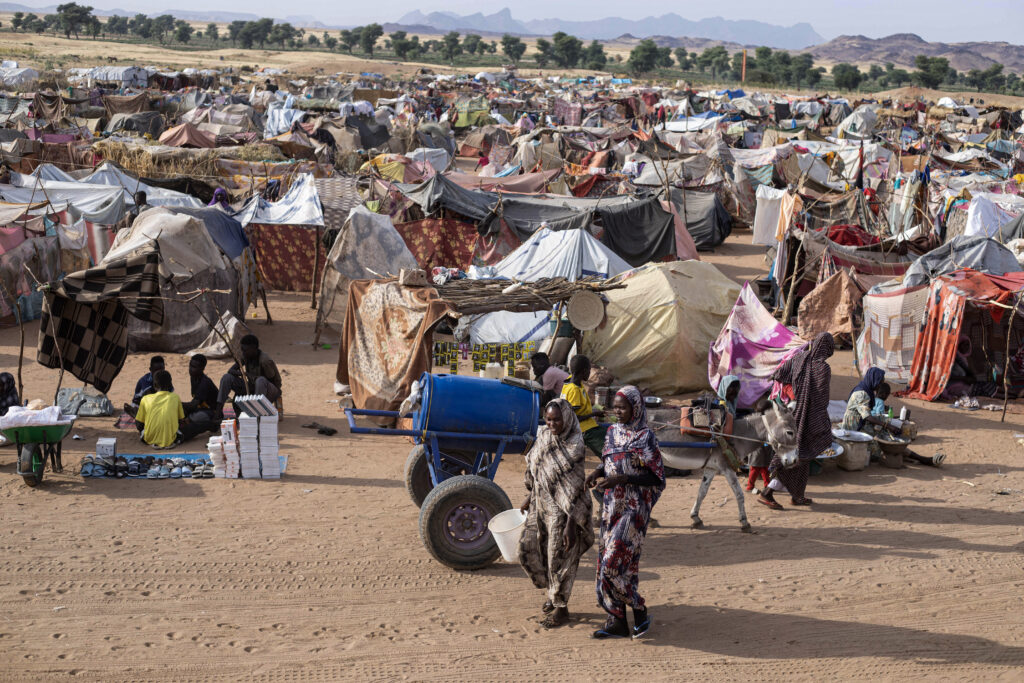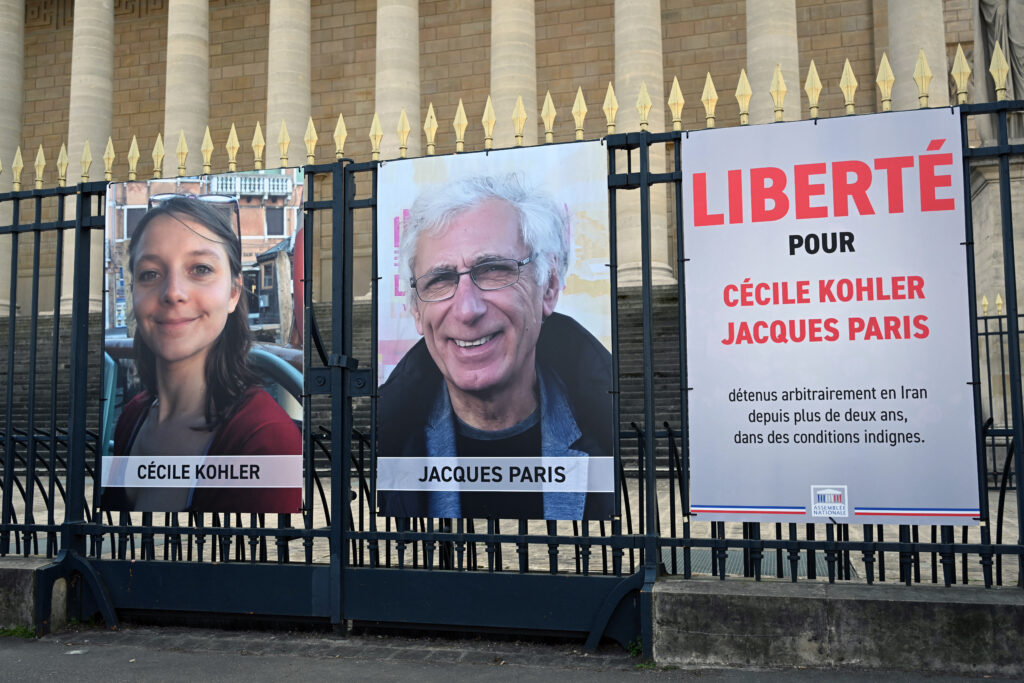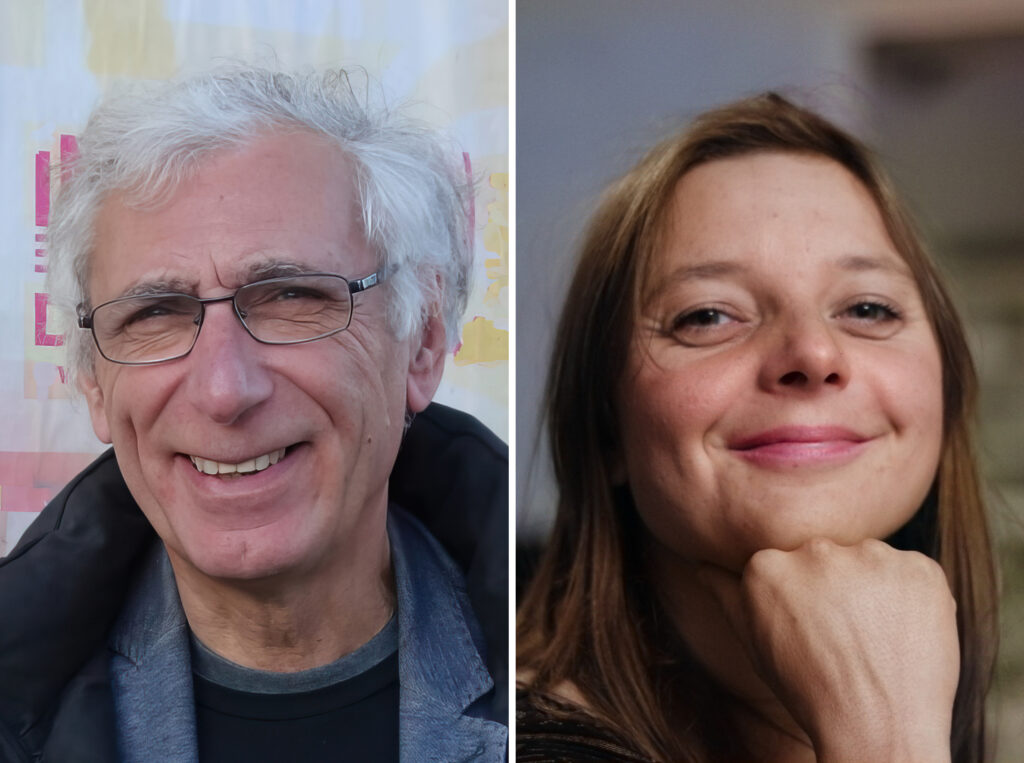AFP Asia Business
Attack on funeral in Sudan’s Kordofan region kills 40: UN
An attack on a funeral in the strategic city of El-Obeid in Sudan’s central Kordofan region killed 40 people, the UN said Wednesday, as paramilitaries looked poised to launch an offensive there.The United Nations’ humanitarian office did not specify when the attack took place or who was behind it, but said that the situation in Kordofan was worsening.The war in Sudan has killed tens of thousands of people and displaced millions more, with the fighting spreading to new areas in recent days, sparking fears of an even greater humanitarian catastrophe.The paramilitary Rapid Support Forces (RSF), at war with the military since 2023, appears to have shifted its focus to Kordofan after capturing El-Fasher, the last army stronghold in the vast western Darfur region.”Local sources report that at least 40 civilians were killed and dozens injured yesterday in an attack on a funeral gathering in El Obeid, the capital of North Kordofan State,” the UN humanitarian agency OCHA said. “Once again, OCHA calls for an immediate cessation of hostilities and for all parties to protect civilians and respect international humanitarian law.”El-Obeid is a logistics and command hub that links Darfur to the Sudanese capital Khartoum. The RSF claimed control of Bara, a city north of El-Obeid, last week.- Mass rape -People forced to flee El-Fasher have described horrific abuse, including rape, at the hands of the RSF.”The rapes were gang rapes. Mass rape in public, rape in front of everyone and no one could stop it,” mother of four Amira said from a makeshift shelter in Tawila, some 70 kilometres (43 miles) west of El-Fasher.”You’d be asleep and they’d come and rape you,” she said, using a pseudonym while speaking during a webinar organised by campaign group Avaaz. “I saw with my own eyes people who couldn’t afford to pay (for safe passage) and the fighters took their daughters instead.”Yale University’s Humanitarian Research Lab released close-up satellite images showing evidence of atrocities committed during the RSF’s takeover of El-Fasher. The lab’s executive director, Nathaniel Raymond, told AFP in an interview that the images were “a spark plug for public outrage”. Both sides in the war have been accused of committing atrocities.The fall of El-Fasher gave paramilitaries control over all five state capitals in Darfur, raising fears that Sudan would effectively be partitioned along an east-west axis.The RSF now dominates Darfur and parts of the south, while the army holds the north, east and central regions along the Nile and Red Sea.The UAE is accused by the UN of supplying arms to the RSF — allegations it has repeatedly denied.Abu Dhabi on Wednesday voiced its support for a ceasefire and its “deep denunciation of the ongoing human rights violations and horrific crimes being committed against civilians in various parts of Sudan”, including El-Fasher.The Sudanese army, meanwhile, has received support from Egypt, Saudi Arabia, Turkey and Iran, according to observers.- Truce proposal -Sudan’s army-backed defence minister on Tuesday said the military would press on with its fight against the RSF after an internal meeting to discuss a US proposal for a ceasefire.”We thank the Trump administration for its efforts and proposals to achieve peace,” Hassan Kabroun said in a speech broadcast on state television, but added that “preparations for the Sudanese people’s battle are ongoing”.No details of the US truce proposal have been made public.White House Press Secretary Karoline Leavitt told reporters on Tuesday that Washington wanted “to see this conflict come to a peaceful end”, but added “it’s a very complicated situation on the ground right now”.She said the United States was “actively engaged” in seeking a peace deal alongside Egypt, Saudi Arabia and the UAE.The army-aligned authorities had rejected an earlier truce proposal from the four countries — referred to as the Quad — under which both the army and the RSF would be excluded from a transitional political process.Speaking at a forum in Qatar on Tuesday, UN Secretary-General Antonio Guterres called on the warring parties to “come to the negotiating table, bring an end to this nightmare of violence — now”.
‘Hostage diplomacy’: longstanding Iran tactic presenting dilemma for West
Iran since the Islamic revolution has employed the tactic of arresting Westerners in a bid to extract concessions from its foes, in a strategy of “hostage diplomacy” that has long presented Europe and the United States with a dilemma, observers say.Iranian authorities this week released two French nationals, Cecile Kohler and Jacques Paris, from jail in Tehran after more than three years. They had been convicted on charges of espionage but their families said they were innocent tourists unwittingly caught up in a wider game being played out between Tehran and the West.France described the pair, as well as several other French nationals detained in Iran who were recently released, as “state hostages”. Over the last years, dozens of Europeans and Americans have been detained in similar circumstances.The strategy has long antecedents, going back to the seizure of the US embassy in Tehran in November 1979 by Islamist radicals in the wake of the revolution, which saw dozens of Americans held for 444 days into early 1981. “Iran has pursued hostage diplomacy since the founding of the Islamic Republic in 1979,” said Jason Brodsky, policy director of US-based think tank United Against Nuclear Iran. “It uses hostages as pawns to extract concessions that it could not otherwise achieve from the United States and its allies,” he added.The Islamic republic denies it has any strategy of hostage taking and all foreigners jailed are convicted after due legal process.- ‘Not the only ones’ -Such concessions include unfreezing assets or the release of Iranian nationals convicted in the United States, Europe and elsewhere on charges such as sanctions violations, assassination plots, or terrorism, he said.”What the Iranian regime is practising is state-sponsored hostage taking, also known as hostage diplomacy,” added Daren Nair, a security consultant who has for years campaigned for detainees’ releases worldwide.”And the Iranian regime are not the only ones to do that. The Venezuelans do it, the Russians do it, the Chinese do it,” he added.For Clement Therme, an academic at France’s Universite de Montpellier Paul-Valery, who closely follows the issue, the policy is “a pillar of Iranian foreign policy”.”Over time, there are arrests and releases, during periods of rapprochement and tension. But it’s the intensity that varies, and the practice continues.”The release of Kohler and Paris, who have yet to be allowed to return to France, came after France freed on bail Iranian woman Mahdieh Esfandiari, detained in Paris on charges of spreading terror propaganda. Tehran had explicitly linked the two cases, although the French foreign ministry has declined to comment on any deal.- ‘Piecemeal manner’ -The release of Western nationals detained in similar circumstances over the last years was often timed with Tehran receiving something in return after painstaking and ultra-secret diplomacy.The cases of several British citizens, including dual national Nazanin Zaghari-Ratcliffe, were linked to a payment owed by the UK to Iran for tanks ordered by the ousted shah that were never delivered. That debt was eventually settled and Zaghari-Ratcliffe and two other Britons were released in 2022.In 2023, five Americans held in Iran, including the US-Iranian businessman Siamak Namazi who had been imprisoned for eight years, were released in a scheme that saw $6 billion of Iranian assets unfrozen in South Korea.The release of British-Australian academic Kylie Moore-Gilbert by Iran in 2020 came after Thailand freed three Iranian men jailed over a 2012 bomb plot. But despite the recent releases, others remain held by Tehran, including Swedish-Iranian academic Ahmadreza Djalali, sentenced to death in 2017 on espionage charges his family vehemently rejects.British couple Lindsay and Craig Foreman have been held in Iran since January on espionage charges after Iranian authorities seized the pair while they were on a round-the-world motorbike trip.Brodsky said Europe and the United States should consider imposing a wholesale ban on travel to Iran by their nationals. But he acknowledged too that Washington and its allies had treated “this problem in a piecemeal manner” for too long.”The US government should be working collectively with its allies to impose a range of multinational penalties on the Islamic Republic the moment any hostage from these countries is taken by the Iranian regime — this includes sanctions and diplomatic isolation,” he said.
Macron presses Iran to allow released French pair to return home
President Emmanuel Macron on Wednesday urged his Iranian counterpart to let two French citizens return home, as they were released after over three years in prison on espionage charges their families vehemently denied.Meanwhile an Iranian citizen arrested in France in February on charges of promoting “terrorism” on social media, and who Tehran had said could be swapped in the case, was now at Iran’s embassy in Paris, the Iranian foreign minister said.Cecile Kohler, 41, and Jacques Paris, 72 were arrested in May 2022 at the end of a trip to Iran that their families say was purely touristic in nature.They were freed from Tehran’s Evin prison late on Tuesday in what the Iranian authorities described as a conditional release, and immediately taken by French diplomats to France’s mission in Tehran. On Wednesday, Macron asked his Iranian counterpart Massoud Pezeshkian in a telephone conversation for their “full and complete release … as soon as possible”, the Elysee said.Earlier Wednesday Kohler and Paris spoke to Macron via videoconference, said French ambassador to Tehran Pierre Cochard, who described their call as “very moving”.Both teachers, although Paris is retired, the pair were among a number of Europeans caught up in what activists and some Western governments — including France — describe as a deliberate strategy of hostage-taking by Iran to extract concessions from the West.Tehran has said the pair have been granted “conditional release” and “will be placed under surveillance until the next stage of the judicial proceedings.”French Foreign Minister Jean-Noel Barrot told France 2 TV that their release is “a first step”.Their sentences on charges of spying for France and Israel, issued last month after a closed-door trial, amounted to 17 years in prison for Paris and 20 years for Kohler.Iran, which has previously carried out exchanges of Westerners for Iranians held by the West, had said they could be freed as part of a swap deal with France, which would also see the release of Iranian Mahdieh Esfandiari. Esfandiari was arrested in France in February on charges of promoting “terrorism” on social media, according to French authorities. She is to go on trial in Paris from January 13 but was last month released on bail by the French judicial authorities in a move welcomed by Tehran.”Our citizen in France, Ms Esfandiari, is now free, she is at our embassy, and hopefully, she will return once her trial is over,” Foreign Minister Abbas Araghchi said Wednesday.Asked by France 2 if there had been a deal with Tehran, Barrot declined to comment, saying their release had come about “as the fruit of the work of French diplomacy”.
French pair released by Iran await return home
A French pair released by Iran after over three years in prison on espionage charges their families vehemently denied were on Wednesday awaiting permission to be allowed to return to France and end their ordeal.Meanwhile an Iranian citizen arrested in France in February on charges of promoting “terrorism” on social media, and who Tehran had said could be swapped in the case, was now at Iran’s embassy in Paris, the Iranian foreign minister said.Cecile Kohler, 41, and Jacques Paris, 72 were arrested in May 2022 at the end of a trip to Iran that their families say was purely touristic in nature.They were freed from Tehran’s Evin prison late on Tuesday in what the Iranian authorities described as a conditional release and immediately taken by French diplomats to France’s mission in Tehran. They spoke Wednesday morning to President Emmanuel Macron via videoconference, French ambassador to Tehran Pierre Cochard told RTL radio.”It was very moving for them and for the president. They thanked him for his commitment” to securing their release, he said.Both teachers — although he is retired, they were among a number of Europeans caught up in what activists and some Western governments including France describe as a deliberate strategy of hostage-taking by Iran to extract concessions from the West.- ‘Conditional release’ -In Tehran, foreign ministry spokesman Esmaeil Baghaei said late Tuesday they had been granted “conditional release” on bail by the judge in charge of the case and “will be placed under surveillance until the next stage of the judicial proceedings.”French Foreign Minister Jean-Noel Barrot told France 2 TV that their release is “a first step towards their definitive release”.Their sentences on charges of spying for France and Israel issued last month after a closed-door trial amounted to 17 years in prison for Paris and 20 years for Kohler.Iran, which has previously carried out exchanges of Westerners for Iranians held by the West, had said they could be freed as part of a swap deal with France, which would also see the release of Iranian Mahdieh Esfandiari. Esfandiari was arrested in France in February on charges of promoting “terrorism” on social media, according to French authorities. She is to go on trial in Paris from January 13 but was last month released on bail by the French judicial authorities in a move welcomed by Tehran.”Our citizen in France, Ms Esfandiari, is now free, she is at our embassy, and hopefully, she will return once her trial is over,” Foreign Minister Abbas Araghchi said Wednesday.Asked by France 2 if there had been a deal with Tehran, Barrot declined to comment, saying their release had come about “as the fruit of the work of French diplomacy”.



